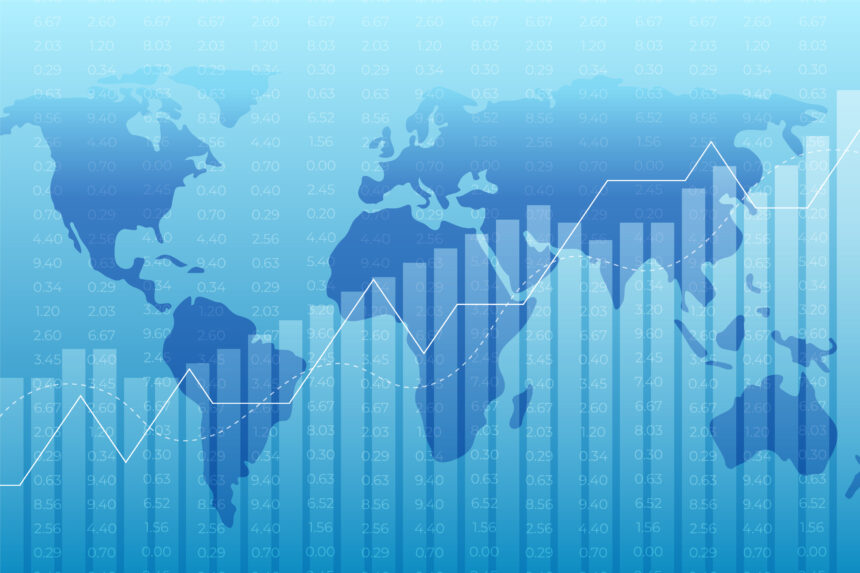The stock market is a complex ecosystem influenced by various factors, including geopolitical events. Geopolitical events encompass political, economic, and social developments that occur on a global scale and can have a significant impact on financial markets. This article aims to explore the relationship between geopolitical events and the performance of the Johannesburg Stock Exchange (JSE), shedding light on how these events shape investor sentiment, market volatility, and overall stock market performance.
Geopolitical Events and Investor Sentiment:
Geopolitical events often trigger uncertainty and volatility in financial markets, as investors closely monitor political tensions, trade disputes, military conflicts, and regulatory changes. The JSE is not immune to these influences, and shifts in investor sentiment can result in significant fluctuations in stock prices. For example, when geopolitical events create an atmosphere of stability and confidence, investors tend to be more willing to take risks, leading to increased market activity and potentially higher stock valuations. Conversely, events that generate uncertainty and fear can prompt investors to adopt a more cautious approach, causing a decline in market activity and lower stock prices.
Global Economic Indicators:
Geopolitical events also intersect with global economic indicators, such as GDP growth, inflation rates, interest rates, and currency exchange rates. For instance, trade tensions between major economies can impact the JSE’s performance through changes in export/import volumes, commodity prices, and currency fluctuations. South Africa, being a commodity-driven economy, is particularly sensitive to geopolitical events that affect the global demand and prices of key commodities like gold, platinum, and coal. Similarly, shifts in interest rates and currency values resulting from geopolitical events can influence foreign investor sentiment and capital flows, thereby impacting the JSE’s performance.
Sector-Specific Impacts:
Geopolitical events can affect different sectors of the JSE in distinct ways. For instance, defense-related events or military conflicts may positively impact defense and security-related companies. Conversely, sectors heavily dependent on international trade, such as manufacturing and logistics, may face challenges due to trade disputes or political tensions. Political changes and regulatory shifts can also have sector-specific effects. For instance, changes in government policies or regulations can impact industries such as mining, energy, and telecommunications, leading to fluctuations in stock prices of companies operating within these sectors.
Risk Perception and Market Volatility:
Geopolitical events have a direct influence on market volatility. When significant events occur, market participants often reassess the risks associated with their investments. Increased uncertainty and perceived risks can lead to higher volatility, as investors adjust their portfolios to reflect changing geopolitical dynamics. Volatility can be both a challenge and an opportunity for investors, as it introduces the potential for both higher returns and increased losses. It is important to note that short-term market reactions to geopolitical events may not always align with the long-term fundamentals of companies or the broader economy.
Managing Geopolitical Risk:
Given the interconnectedness of global markets, it is crucial for investors and market participants to understand and manage geopolitical risk. Diversification across different asset classes, sectors, and regions can help mitigate the impact of geopolitical events on investment portfolios. In addition, staying informed about political developments, assessing the potential risks and opportunities they present, and maintaining a long-term investment perspective are essential.
Conclusion:
Geopolitical events exert a significant influence on the performance of the JSE. Investor sentiment, global economic indicators, sector-specific impacts, and market volatility are all affected by these events. Understanding the dynamics between geopolitical events and the stock market is essential for investors to make informed decisions, manage risk, and navigate market fluctuations. While short-term reactions to geopolitical events can create volatility and uncertainty, a long-term investment approach aligned with fundamental analysis and diversification can help investors navigate the impact of these events on the JSE and potentially capitalise on opportunities that arise.
Disclaimer: The information provided in this article is for educational and informational purposes only and should not be construed as financial or investment advice. Always conduct thorough research and consult with a qualified financial advisor before making investment decisions.










